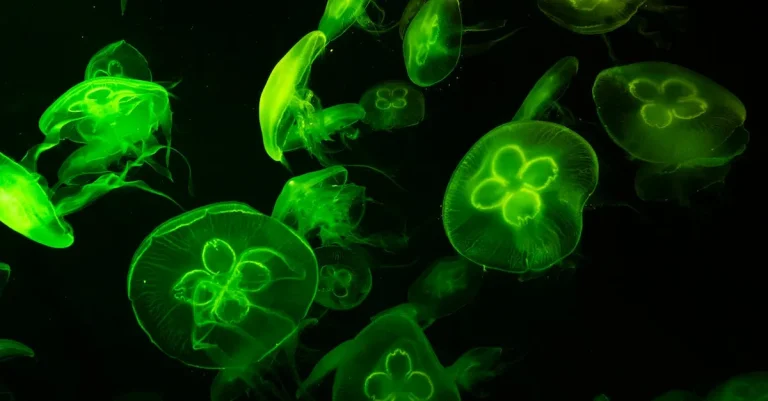The Easiest Science Classes To Take In College
Science courses have a reputation for being challenging, but some are considered easier options for non-science majors. If you’re short on time, here’s a quick answer: Often cited as the easiest college science classes are astronomy, meteorology, geology, environmental science, and oceanography.
In this approximately 3000 word guide, we’ll define ‘easy’ science classes, look at examples from the major science disciplines, discuss factors that influence difficulty level, and provide tips for succeeding in any science course as a non-major.
Defining ‘Easy’ Science Courses
When it comes to choosing science courses in college, some students prefer to opt for classes that are considered relatively easier compared to others. While the term “easy” can be subjective and vary from person to person, there are certain characteristics that make a science course more approachable for students.
In this article, we will explore the defining features of ‘easy’ science courses.
Less Math and Problem Solving
One characteristic that often makes a science course easier for students is a lower emphasis on complex mathematical concepts and problem-solving. While math is an integral part of many scientific disciplines, courses that require less advanced math skills can be more accessible to students who may struggle with quantitative reasoning.
These courses may focus more on conceptual understanding and real-world applications, allowing students to grasp the fundamental concepts without getting overwhelmed by complex calculations.
Introductory Courses for Non-Majors
Another type of science course that is often considered easier is the introductory course designed specifically for non-science majors. These courses are typically designed to provide a broad overview of a scientific discipline without delving too deeply into complex theories or technical details.
They are often taught in a way that assumes no prior knowledge of the subject, making them accessible to students from various academic backgrounds. These courses may focus more on the practical applications and relevance of science in everyday life, making them engaging and relatable.
Interesting Subject Matter
One aspect that can make a science course easier for students is the subject matter itself. If the course covers a topic that students find interesting or have a personal connection to, they are more likely to be motivated and engaged, which can make the learning process easier.
For example, a biology course that focuses on human anatomy or a chemistry course that explores the chemistry of food may be more appealing to students and therefore perceived as easier. When students have a genuine interest in the subject matter, they are more likely to invest time and effort into understanding the concepts.
It’s important to note that while these characteristics can make a science course easier for some students, it doesn’t mean that the course lacks academic rigor or value. Easy science courses can still provide valuable knowledge and skills, and can be a great option for students who want to fulfill science requirements or explore scientific disciplines outside of their major.
The Easiest Classes in Each Science Branch
Physics and Chemistry
When it comes to the easiest classes in the field of physics and chemistry, many students find introductory courses to be the most manageable. These courses typically cover the basic principles and fundamental concepts of physics and chemistry.
They provide a solid foundation for more advanced coursework and are designed to be accessible to students from various academic backgrounds. Students can expect to learn about topics such as Newton’s laws of motion, atomic structure, chemical reactions, and thermodynamics.
Online platforms like Khan Academy offer excellent resources for self-study and additional practice.
Earth and Space Science
When it comes to Earth and Space Science, some of the easiest classes include introductory geology and astronomy courses. These classes typically focus on providing a broad overview of the Earth’s geological processes, the formation of rocks and minerals, and the study of celestial objects such as planets, stars, and galaxies.
Students can expect to learn about plate tectonics, weathering and erosion, the solar system, and the life cycle of stars. Exploring national parks or visiting planetariums can be a great way to supplement classroom learning and enhance understanding of these subjects.
Life Sciences
In the realm of life sciences, introductory biology courses are often considered the easiest. These classes cover a wide range of topics, including cellular biology, genetics, evolution, and ecology. Students can expect to learn about the structure and functions of cells, the principles of inheritance, the mechanisms of evolution, and the interactions between organisms and their environment.
Online resources like the Nature website provide up-to-date research articles and scientific news related to biology, which can be useful for further exploration and understanding of the subject.
Environmental Science
For those interested in environmental science, introductory courses in environmental studies or environmental science are often considered relatively easy. These classes provide an overview of the interactions between humans and the environment, including topics such as pollution, climate change, and sustainable resource management.
Students can expect to examine the impact of human activities on ecosystems, explore strategies for conservation and preservation, and gain an understanding of environmental policy and regulations. Participating in local environmental initiatives and volunteering for organizations like Greenpeace can be a great way to apply classroom knowledge and contribute to environmental causes.
While these classes may be considered “easier” compared to more advanced courses in their respective branches of science, it is important to remember that every subject requires effort and dedication to succeed.
It’s always recommended to engage in active learning, seek help when needed, and make use of available resources to make the most out of any academic endeavor.
Factors Influencing Difficulty
When it comes to determining the difficulty of a science class in college, several factors come into play. These factors can greatly influence the overall experience and the level of challenge students may face.
Understanding these factors can help students choose the easiest science classes to take in college.
Professor Quality
One of the key factors that can impact the difficulty of a science class is the quality of the professor. A knowledgeable and engaging professor can make even the most complex scientific concepts easier to understand.
On the other hand, a professor who lacks effective teaching methods or fails to explain the material clearly can make a seemingly easy science class much more challenging. Before enrolling in a science class, it can be beneficial to research the professors teaching the course and read reviews from previous students.
Workload and Pacing
The workload and pacing of a science class can also play a significant role in its level of difficulty. Some science classes may have extensive lab work or require regular assignments and projects, which can add to the overall workload.
Additionally, the pace at which the material is covered can vary from class to class. Some classes may move at a fast pace, requiring students to grasp concepts quickly, while others may have a more relaxed pace, allowing for a deeper understanding of the material.
It is important for students to consider their personal preferences and time management skills when selecting a science class with an appropriate workload and pacing.
Course Format
The format of a science course can also influence its difficulty level. Traditional lecture-style classes may be more straightforward and familiar to some students, while others may find them less engaging.
On the other hand, classes with a hands-on or interactive format, such as laboratory-based courses or fieldwork, can provide a more immersive learning experience. These types of classes may require more active participation and experimentation, which can make the subject matter more accessible and enjoyable for some students.
It is important to consider one’s learning style and preferences when choosing a science class with a suitable format.
By taking these factors into account, students can make informed decisions when selecting the easiest science classes to take in college. Remember that what may be easy for one person may not be the same for another, so it is essential to consider individual strengths and interests when making these choices.
Ultimately, the goal should be to find a science class that aligns with one’s abilities and promotes a positive learning experience.
Succeeding as a Non-Major in Any Science
Leverage Passion for the Topic
One of the keys to succeeding in any science class as a non-major is to find a topic that you are truly passionate about. When you have a genuine interest in the subject matter, learning becomes easier and more enjoyable.
Whether it’s astronomy, biology, chemistry, or any other scientific field, finding something that excites you will make studying and attending classes a lot more rewarding. Don’t be afraid to explore different areas of science and find what sparks your curiosity!
Stay on Top of Content
While it may be tempting to think that as a non-major, you can slack off a bit in your science classes, it’s important to stay on top of the content. Science courses often build upon previous knowledge, so falling behind can make it difficult to catch up.
Make a study schedule, review your notes regularly, and don’t hesitate to ask questions in class or seek help from your professor or classmates. By staying engaged and actively participating in the coursework, you’ll have a much better chance of succeeding.
Use Available Resources
Colleges and universities offer a wealth of resources to help students succeed in their science classes. Take advantage of these resources, such as tutoring centers, study groups, and online materials.
Many science departments also have research opportunities or lab assistant positions available, which can provide hands-on experience and further enhance your understanding of the subject. Additionally, don’t forget to utilize online resources like Khan Academy or Crash Course for additional explanations and practice exercises.
Remember, you don’t have to go through your science classes alone – there are plenty of resources available to support you!
Conclusion
While no college course is truly easy, some science classes cater better to non-majors. Understanding the factors that dictate difficulty level, and utilizing available resources, can help lead to fulfilling science experiences.







